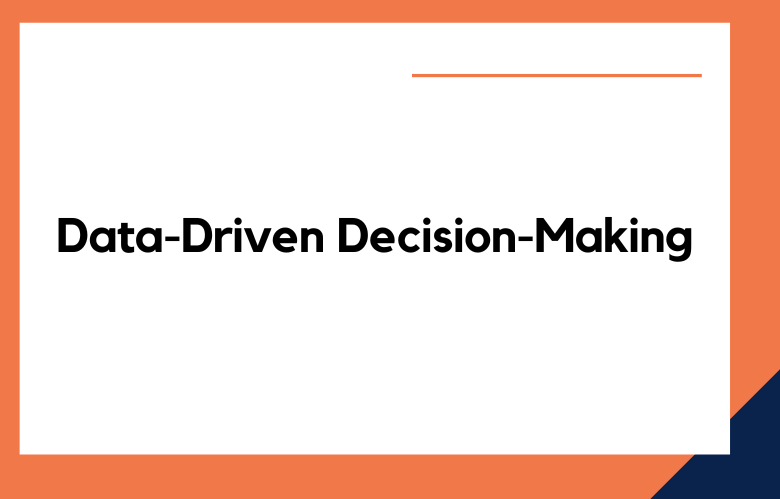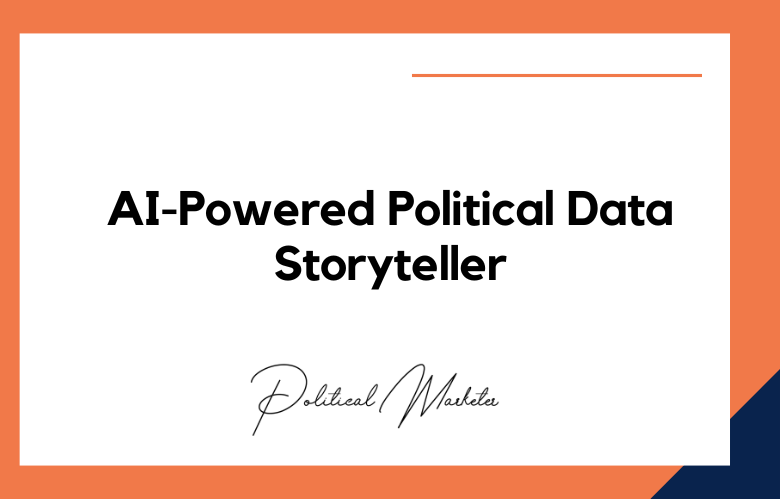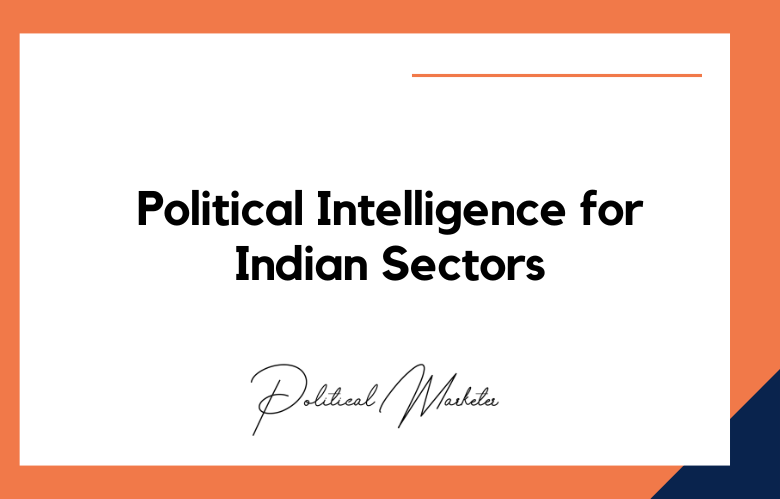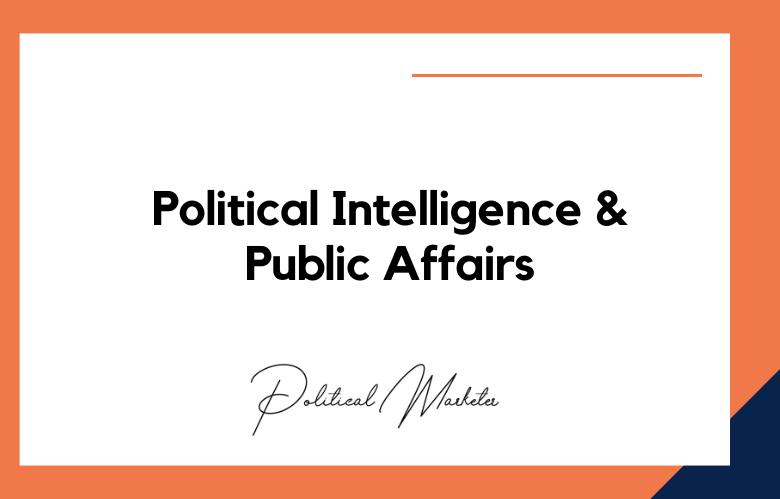Political campaigns are one of the most complex processes involving numerous decisions and strategies that can be critical to their success or failure. Hence, data-driven decision-making comes into the picture and can provide much-needed insights and guidance.
Artificial Intelligence (AI) is a technology that has the potential to transform this entire process by deploying innovative algorithms to analyze the data and uncover hidden patterns and trends. We will explore how AI drives data-driven decision-making in political campaigns, as well as its benefits and future implications.
Harnessing the Power of AI: Data-Driven Decision-Making in Political Campaigns
Amidst the age of technological advancements, Artificial Intelligence (AI) has become the beacon of hope and revolution in many fields, including the political arena.
AI-powered data analysis and decision-making have gained significant momentum, transforming how political campaigns are conducted to tailor strategies and win elections.
The power of AI lies in its ability to process vast amounts of data quickly and accurately. Data such as voter demographics, historical voting patterns, and social media analytics can be analyzed and interpreted with the help of AI algorithms to unearth valuable insights. These insights can then be transformed into actionable strategies that fuel a successful political campaign.
Cutting-Edge Strategies: Using AI for Data-Driven Decision-Making in Political Campaigns
In today’s highly connected world, political campaigns are no longer just about speeches and pamphlets. The digital age has brought about an entirely new level of campaigning, and cutting-edge strategies that involve Artificial Intelligence (AI) are proving to be the way forward.
AI in political campaigns can make a significant difference in data-driven decision-making.
With the ability to mine large data sets and opinions across social media platforms, AI algorithms can assist political parties in predicting voter behavior and crafting personalized political messages explicitly targeted to individual voters.
This makes campaigns more efficient and effective, as political parties can tailor their messaging and resources to the right target audience.
Revolutionizing Politics: How AI is Transforming Data-Driven Decision-Making in Campaigns
In recent years, the use of artificial intelligence (AI) has brought about a revolution in politics, transforming the way data-driven decision-making is carried out in political campaigns.
Campaigns have always relied on data to make informed decisions. Still, with the help of AI, campaign teams can more accurately predict voter behavior and optimize their strategies for success.
One of the most significant ways AI is used in politics is through targeted advertising. By analyzing vast amounts of data on individual voters, campaign teams can create highly targeted and personalized ads that are more likely to persuade voters to support their candidate.
AI algorithms can also analyze social media data to identify key influencers and track how political messages are spreading on various platforms.
Data Analytics Meets Politics: The Role of AI in Driving Political Campaigns
In today’s world, political campaigns increasingly rely on data and analytics to drive their decision-making processes, and artificial intelligence (AI) often plays a central role in these efforts.
With the help of AI, political campaigns can gather vast amounts of data on voters, including everything from demographic and geographic information to voting patterns and social media activity. This data is then used to craft targeted messaging and strategies to persuade voters to support a particular candidate or issue.
One of the key advantages of using AI in political campaigns is the ability to quickly and effectively analyze large amounts of complex data.
Using advanced algorithms and machine learning techniques, political operatives can identify patterns and trends that would be difficult or impossible to detect using traditional methods. This can help campaigns better understand the needs and concerns of different voter groups and tailor their messaging accordingly.
Unlocking the Potential: Leveraging AI for Data-Driven Decision-Making in Political Campaigns
The world of politics is ever-evolving and competitive, and campaigns must continuously think outside the box to gain an edge over their opponents.
Leveraging artificial intelligence (AI) for data-driven decision-making has become an increasingly popular strategy, enabling campaigns to identify and target voters based on their attributes and voting tendencies.
Through the implementation of AI, political campaigns can gather and analyze extensive data on potential voters, including demographic information and preferences.
Utilizing this information through various AI tools, such as machine learning algorithms, natural language processing, and predictive modeling, can help campaigns optimize voter outreach strategies.
AI-Powered Campaigns: Proven Successes in Data-Driven Decision-Making
Over the years, data-driven decision-making has emerged as a critical enabler for businesses to drive growth and boost productivity. Incorporating Artificial Intelligence (AI) in the process has further enhanced the precision and accuracy of these decisions.
AI-powered campaigns, in particular, have gained widespread popularity recently due to their proven success in leveraging the power of data.
By using AI algorithms, businesses can collect, analyze, and interpret vast amounts of customer data in real time. This valuable insight can generate targeted campaigns to appeal to specific audience segments. These campaigns are personalized, relevant, and more likely to convert into sales.
Personalizing Campaigns:
One of AI’s most significant benefits to political campaigns is the ability to personalize messages and strategies based on individuals using advanced analytics.
With the availability of massive data sets, AI can analyze voters’ individual preferences and choices to predict their behavior and customize the campaigns accordingly. It can help identify and target specific micro-groups of voters with tailored messages, making the movement more personalized and effective.
Analyzing Social Media Trends:
Social media has become a powerful tool for political campaigns, reaching millions and creating a buzz around the campaign. AI can help analyze the massive data sets generated by social media platforms to identify emerging trends, hot topics, and sentiment analysis.
AI algorithms can track social media mentions, likes, shares, and comments to understand voters’ views and preferences. It can also help campaigns identify influencers who can endorse the candidate and help reach out to a broader audience.
Optimizing Fundraiser Events:
Political campaigns rely heavily on fundraisers to generate the necessary funds to support the various activities. AI can help optimize fundraising events by analyzing historical data from previous events.
It can help predict the optimal time, location, and format of events by analyzing donors’ demographics, interests, and preferences. With AI-powered event analysis, campaigns can ensure that their fundraising efforts are optimal and effective.
Predicting Election Results:
One of the most significant advantages of AI is its ability to analyze massive data sets to predict outcomes. AI can analyze historical voting patterns, demographic trends, and other variables in political campaigns to predict accurate election results.
It can help movements make informed decisions regarding the allocation of resources, focusing efforts on more competitive regions and tailoring messages to the target audience. AI-enabled predictions can provide campaigns a competitive edge over their rivals and increase their chances of success.
Future Implications:
AI is significantly transforming political campaigns’ traditional methods, enabling more intelligent decisions and effective targeting of resources. While it offers enormous benefits, it raises ethical concerns, such as using personal data, bias, transparency, and accountability.
Hence, creating a robust framework for its implementation and governance becomes essential. The future of AI in political campaigns seems exciting, with the potential to revolutionize the entire process, making it more efficient, inclusive, and democratic.
Conclusion:
AI’s transformative power can change how political campaigns are conducted, making them more effective and data-driven. It enables personalized campaigning, analyzing social media trends, optimizing fundraisers, and predicting election results.
However, its implementation raises ethical concerns like transparency, accountability, and bias. Hence, it becomes essential to create a framework that can leverage AI’s benefits while addressing these concerns. The future of AI in political campaigns seems promising, and it will be exciting to see how it shapes the political landscape in the coming years.
Call: +91 9848321284
Email: [email protected]
Data-Driven Decision-Making with AI in Political Campaigns: FAQs
What Is Data-Driven Decision Making In Political Campaigns?
It refers to using analytics and empirical data to guide strategic political decisions, including voter outreach, messaging, and resource allocation.
How Does Artificial Intelligence Help In Political Decision Making?
AI helps analyze vast datasets to uncover patterns, predict voter behavior, and optimize campaign strategies for maximum impact.
Why Is AI-Based Voter Targeting More Effective Than Traditional Methods?
AI uses predictive models and real-time data to segment voters precisely, enabling highly personalized messaging that boosts engagement and conversions.
Can AI Tools Improve Fundraising Strategies In Political Campaigns?
AI can analyze donor behavior, segment audiences, and suggest optimal timing and messaging for donation requests to increase contributions.
How Do Campaigns Collect Data For AI Analysis?
Campaigns gather data from social media, surveys, voter rolls, CRM tools, web analytics, and third-party data providers to feed AI algorithms.
Is AI capable of accurately predicting election outcomes?
While no prediction is perfect, AI improves accuracy by analyzing historical trends, demographic shifts, and real-time sentiment analysis.
What Types Of AI Tools Are Used In Political Campaigns?
Standard tools include machine learning models, predictive analytics platforms, chatbots, natural language processing engines, and CRM integration.
How Does AI Help In Crafting Political Messages?
AI analyzes audience sentiment and feedback to generate message frameworks that align with public opinion and emotional triggers.
Can AI Help In Crisis Management During A Campaign?
AI can detect negative sentiment, misinformation, or trending controversies early, allowing for quick mitigation strategies.
How Does AI Affect Real-Time Decision Making On The Campaign Trail?
AI dashboards and analytics platforms offer real-time voter response updates, enabling instant campaign tactics adjustments.
What Role Does Sentiment Analysis Play In Political Campaigns?
Sentiment analysis helps track voters’ feelings about candidates, issues, and events, guiding message tone and timing.
How Can AI Identify Undecided Or Swing Voters?
AI models analyze behavior and engagement patterns to pinpoint voters most likely to be influenced during outreach.
Is There A Risk Of Bias In AI Models Used In Politics?
Yes, AI models can reflect biases present in training data. It’s crucial to audit and refine these models to ensure ethical outcomes.
How Does AI Improve Volunteer Mobilization And Management?
AI tools can match volunteers to tasks based on skills and availability, optimize schedules, and personalize communication.
What Are The Privacy Concerns Around AI In Political Campaigns?
Concerns include misuse of personal data, lack of transparency, and voter profiling. Compliance with data protection laws is essential.
How Can AI Be Used To Analyze Opposition Campaigns?
AI tools can monitor competitor ads, speeches, and social media to extract insights and inform counter-strategies.
Does AI Help In Improving Voter Turnout?
Yes, AI can encourage participation and boost turnout rates by identifying low-propensity voters and crafting targeted nudges.
What Is The Future Of AI In Political Decision Making?
AI will increasingly integrate into campaign infrastructure, offering deeper insights, automation, and dynamic optimization.
Can Small Or Regional Campaigns Also Benefit From AI?
Absolutely. Affordable AI tools allow even smaller campaigns to access data insights and automation capabilities.
How Should Political Campaigns Prepare For AI Adoption?
They should invest in data infrastructure, hire skilled analysts, ensure ethical compliance, and integrate AI into campaign strategy planning.











